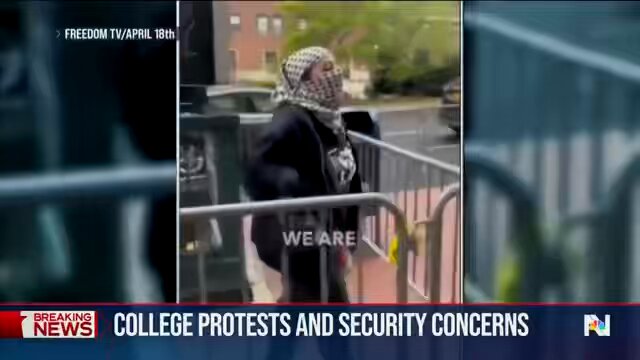The statement discusses the safety concerns of Jewish students at Columbia University amid anti-Israel protests, labeling the protests as 'antisemitic mobs' and suggesting that they have escalated to violence, forcing students out of classrooms. The tone is urgent and accusatory, aiming to draw attention to the perceived threats and the impact on students.
- The statement aims to highlight harm to a specific group, suggesting a need for action to protect these students. However, it may also contribute to fear and division by using charged language ('antisemitic mobs'). [-1]Principle 1:I will strive to do no harm with my words and actions.
- While it seeks to defend the dignity of Jewish students, the characterization of the protests could undermine the dignity of other groups involved, potentially escalating tensions. [-1]Principle 2:I will respect the privacy and dignity of others and will not engage in cyberbullying, harassment, or hate speech.
- The statement lacks a balanced perspective that might promote broader understanding or empathy among conflicting groups, instead potentially deepening divisions. [-2]Principle 3:I will use my words and actions to promote understanding, empathy, and compassion.
- The statement does not foster constructive dialogue or a peaceful resolution to the conflict; it primarily asserts a single perspective. [-2]Principle 4:I will engage in constructive criticism and dialogue with those in disagreement and will not engage in personal attacks or ad hominem arguments.
- The statement does not acknowledge the complexity of the situation or the perspectives of other groups involved in the protests, which might be necessary for a truthful and comprehensive discussion. [-1]Principle 5:I will acknowledge and correct my mistakes.
- The use of the platform here is more divisive than unifying, potentially not aligning with the goal of using influence for the betterment of society. [-1]Principle 6:I will use my influence for the betterment of society.
